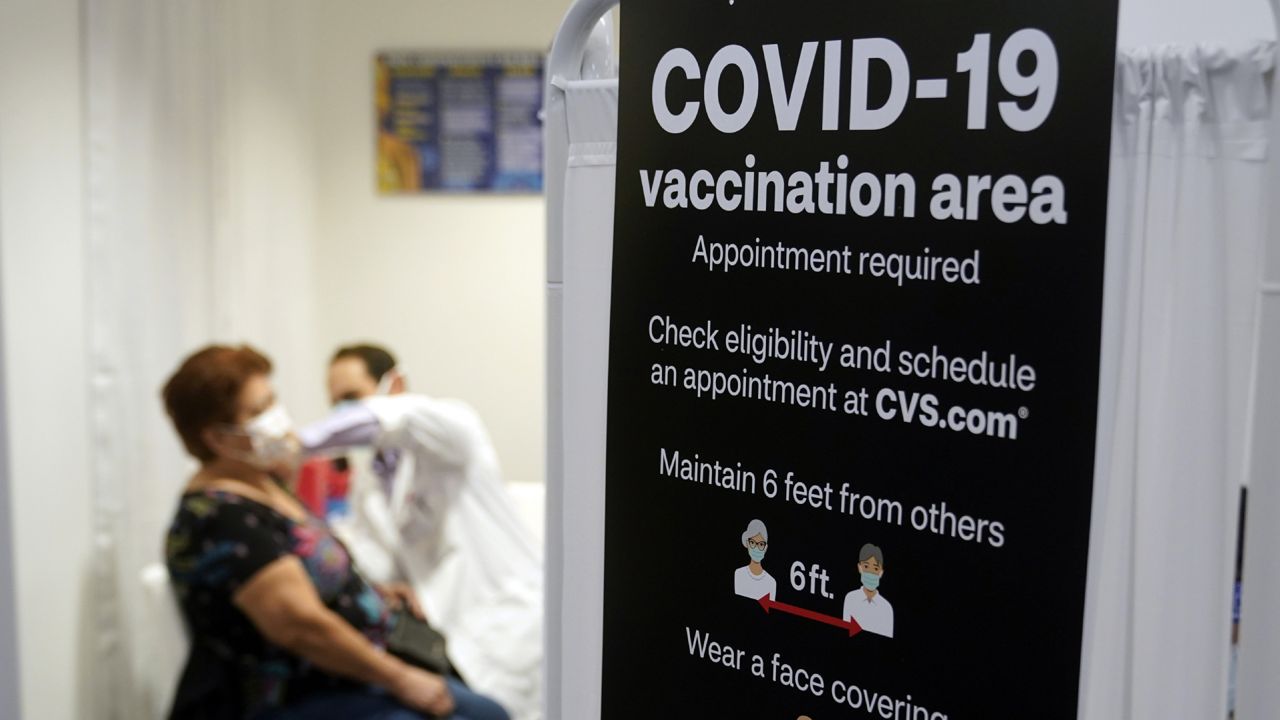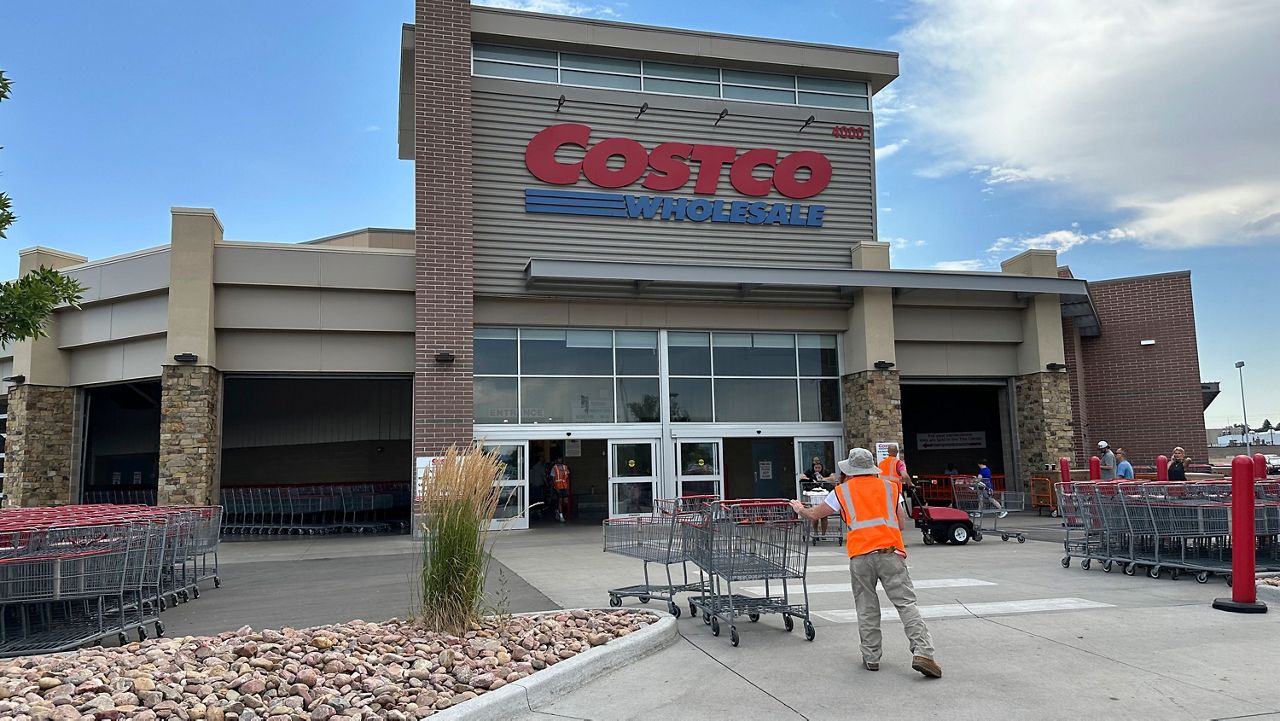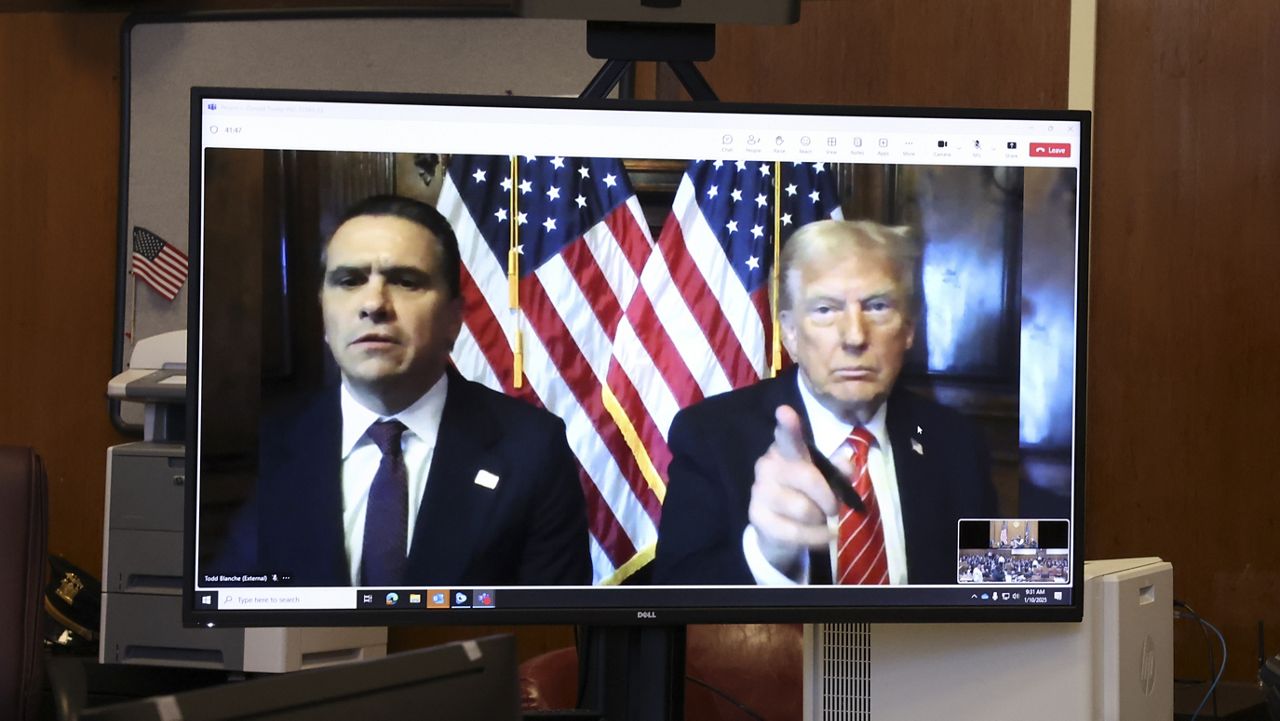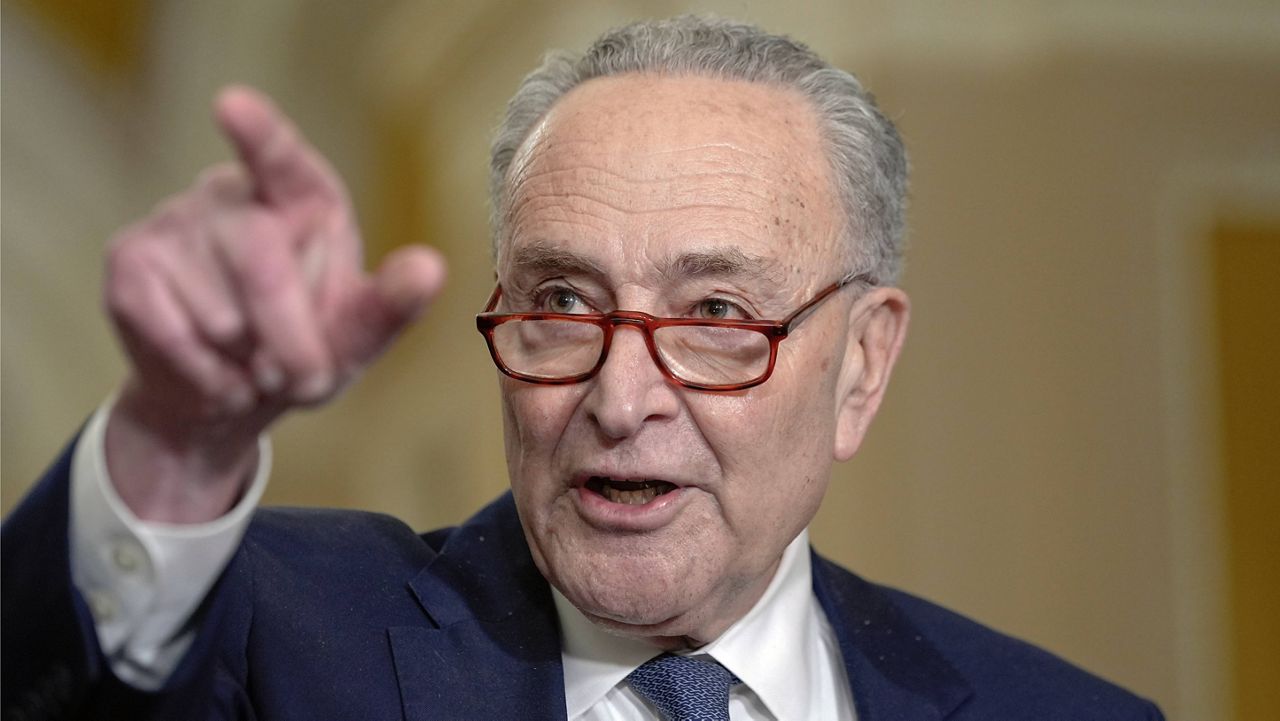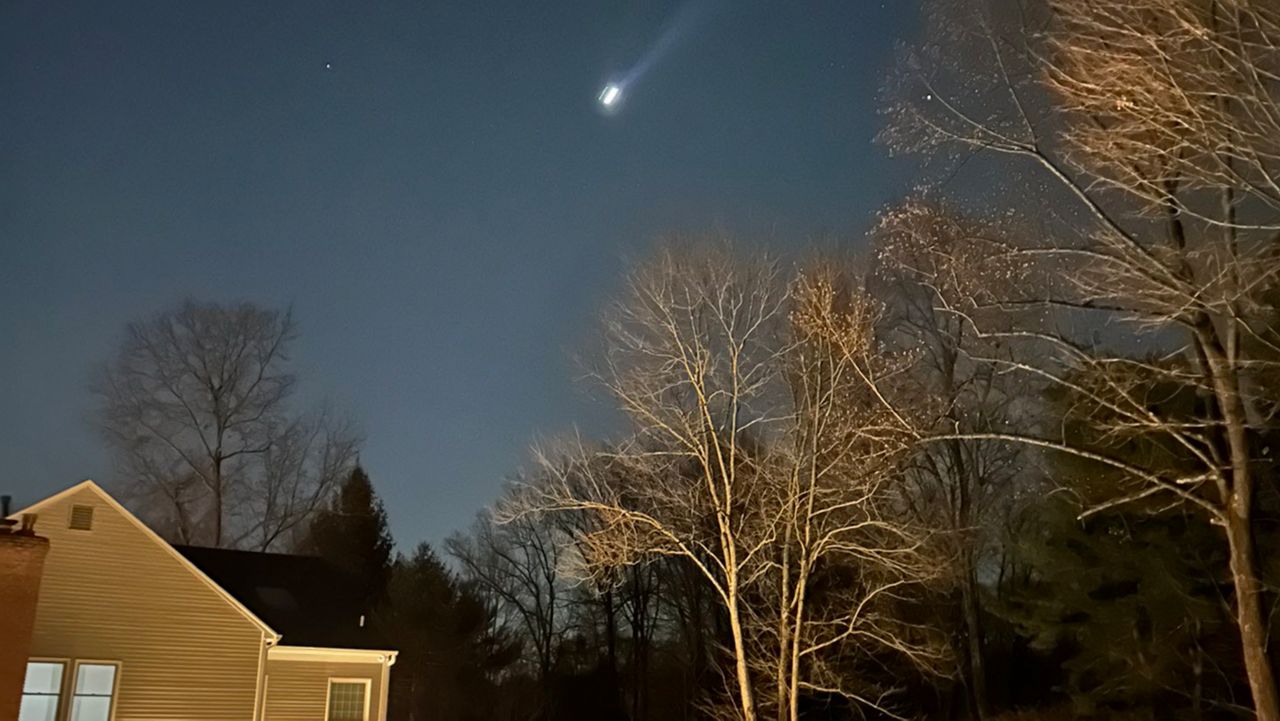On March 11, President Joe Biden announced that all states will be required to open COVID-19 eligibility to all adults — totalling approximately 300 million nationwide — by the beginning of May.
While the federal government has offered recommendations on how state and local governments should prioritize vaccine administration, states have largely been left to decide when and how to update their eligibility requirements, to mixed results.
Over two dozen states have announced set dates before the May deadline when their requirements are expected to be dropped; five states have already opened eligibility to all adult residents. Officials in other states — like Virginia and Alabama — are predicting that vaccine eligibility will open to all residents by or before May 1, but have not given a specific date.
According to a New York Times analysis, officials in upwards of 40 states say they will meet or beat Biden’s May timeline, with nearly 30 states aiming to open eligibility in March or April.
Here are the states already offering vaccines to all adults, and those who have announced specific dates to do so before the president’s May deadline:
Alaska became the first state to drop eligibility requirements for COVID-19 vaccines and allow anyone 16 or older who lives or works in the state to get a vaccine, lifting requirements just days before Biden’s May deadline announcement.
Gov. Mike Dunleavy opened vaccine eligibility on March 9 after his own bout with COVID-19, which he described as an inconvenience and said underscored his own desire to be vaccinated. He said he did not become severely ill but did not want “to be laid up in the house again,” impact his family or possibly spread the virus to others.
Alaska has led states in the percentage of its population to have received two doses of a COVID-19 vaccine, according to the U.S. Centers for Disease Control and Prevention COVID-19 Vaccine Tracker.
Arizona opened vaccine eligibility to all residents on Wednesday, March 24. The change applies to state-run mass vaccination sites in the Phoenix area, Tucson and Yuma. State officials said the decision was made based on a review of vaccination data, dropping demand and an expected increase of supply in the coming weeks.
“The best thing we can do is allow everyone that wants a vaccine to get a vaccine to help build that confidence,” Gov. Doug Ducey told reporters on Monday. “Because there was some slack in the system in terms of appointments available, and now additional supply on hand, we can safely open it up.”
California is expanding its coronavirus vaccine eligibility to anyone 50 and over starting in April and anyone 16 and over on April 15.
Gov. Gavin Newsom said Thursday that California expects to receive 2.5 million doses a week in the first half of April and more than 3 million a week in the second half of the month. That’s a big jump from the roughly 1.8 million doses a week the state is currently getting.
Before Biden revealed his May eligibility deadline, Connecticut had already planned to allow people age 16 and older to make a vaccination appointment on May 3.
But Gov. Ned Lamont is positive the state can beat Biden’s challenge, and moved up the opening of eligibility requirements to April 5.
The Democratic governor also announced the state will be rolling out 35 mobile vaccination vans by mid-August to reach underserved communities. Each van will be able to administer 160 doses per day. They are in addition to many other mobile vaccination units deployed by health care organizations around the state.
All Georgians 16 and older will be eligible for COVID-19 vaccination beginning Thursday, March 25.
Gov. Brian Kemp made the announcement Tuesday, saying supplies of the vaccine continue to rise and that he’s confident that enough older adults have been vaccinated to open up inoculation to the broadest possible population.
Figures from the Georgia Department of Public Health show the state has administered 3.2 million doses overall, with nearly 2.1 million people getting at least one dose.
COVID-19 vaccine eligibility will be open to all Idaho residents 16 and up starting April 5, Gov. Brad Little said Wednesday.
The Republican governor made the announcement three weeks ahead of schedule. He also said people with at least one medical condition will be able to get the vaccine starting Monday, two weeks ahead of schedule.
Little urged residents to get vaccinated.
“Folks, with each passing week as more and more Idahoans choose to get vaccinated, we get closer to returning to normal,” Little said in an online announcement. “The COVID vaccine really is our best shot at protecting jobs and saving lives.”
Gov. J.B. Pritzker announced in mid-March that with supplies of vaccine increasing, priority distribution will end April 12, meaning anyone 16 or older will be allowed to get a shot in the arm three weeks earlier than the May 1 date President Joe Biden set for universal eligibility.
“Although we still are in the midst of a global pandemic, the end seems truly to be in sight,” Pritzker said at a Chicago news conference. “... These vaccines are our fastest ticket back to hugging our grandkids, eating inside restaurants without worrying about the risks, school dances, community celebrations.”
That guidance notably does not include the city of Chicago, which has operated on an independent timeline from the state.
Gov. Eric Holcomb announced Tuesday that the state plans to open vaccine eligibility to all residents 16 and older on Wednesday, March 31 — provided the state “receives a large increase in the amount of vaccine as outlined by the federal government.”
“Additional mass vaccination clinics will be scheduled for April and the state will implement a large employer vaccination program,” Holcomb tweeted. “Starting April 6, decisions about venue capacity and social gatherings will be made by local officials.”
Iowa expects to allow any adult to get a coronavirus vaccine starting April 5, the governor said Wednesday.
The state expects to receive enough vaccines to open eligibility to anyone age 18 or older who wants one, Gov. Kim Reynolds said.
“When this occurs, once again there is going to be more demand than supply at first, just as we’ve experienced each time eligibility was expanded. So please be patient. As our weekly allocations continue to increase so will the number of appointments available and soon there will be enough vaccine for everyone,” she said.
Louisiana will end its limits Monday, March 29 on which adults can receive the shots, giving access to anyone 16 and older who wants to schedule an appointment.
Gov. John Bel Edwards announced the eligibility change Wednesday, joining a growing list of states throwing open vaccine access to any adult who is interested in a shot.
“In the not-too-distant future, we’re going to have enough doses for everybody who wants one. What we need to do is make sure that everybody wants one,” Edwards said.
Maine Gov. Janet Mills a more aggressive timetable for expanding vaccination eligibility last week, making them available to people 50 and older this Tuesday and to all 16 and older on April 19.
The new timetable boosts eligibility by about a week to two weeks from the previous timeline. The state is also following the Biden administration directive to move teachers to the front of the line.
“While this is certainly welcome news, Maine people should keep in mind that, even though they may be eligible, it still may take time to get an appointment and get shots into arms,” Mills said.
Massachusetts plans to open vaccine eligibility to the general public on April 19, although officials recently warned that supplies of COVID vaccines are severely limited statewide.
On Monday, the state made about 800,000 additional residents eligible to receive a coronavirus vaccine and relaxed restrictions on many business and public events.
Residents aged 60 to 64 as well as hundreds of thousands of workers in essential industries including supermarkets, restaurants, public transit and funeral homes can now book a vaccine appointment.
Gov. Larry Hogan on Tuesday announced a series of upcoming vaccination phases, with Maryland residents over 16 becoming eligible for a jab no later than April 27 for Phase 3.
Hogan said people who will be eligible for Phase 2B next week can now begin pre-registering for appointments at mass vaccination sites, as well as people Phase 1 or 2A. People can register online at covidvax.maryland.gov or by calling 1-855-634-6829.
On April 13, everyone 55 and over and all essential workers in critical industries will be eligible in Phase 2C.
Michigan Gov. Gretchen Whitmer announced in mid-March that all residents age 16 and up will become eligible for the COVID-19 vaccine on April 5.
People aged 16 to 49 with certain medical conditions or disabilities will qualify starting March 22, when 50- to 64-year-olds can begin getting shots under a previous announcement. Two days later, March 24, a federally selected regional mass vaccination site will open at Detroit’s Ford Field to administer an additional 6,000 doses a day for two months.
All Mississippi residents became eligible for the coronavirus vaccine as of March 16.
Vaccinations in Mississippi were previously available for anyone ages 50 or over, staff at K-12 schools, first responders, health care workers and those who were at least 16 and had health conditions that might make them more vulnerable to the virus.
“Starting tomorrow, ALL new appointments will be open to ALL Mississippians,” Gov. Tate Reeves tweeted the day before eligibility opened. “Get your shot friends - and let’s get back to normal!”
Any adult in Missouri who wants a COVID-19 vaccine will be eligible to get one beginning April 9, Gov. Mike Parson announced in mid-March.
The governor said he expects a large influx of vaccines to Missouri beginning in April, and his administration wants to open up eligibility to ensure there are enough interested people ready to be vaccinated.
“Supply projections are subject to change, but it is critical that we start preparing for this potential influx and ensure there is a consistent number of people who are eligible and interested in receiving a vaccine,” Parson said in a statement.
Montana residents ages 16 and older will be eligible for the COVID-19 vaccine on April 1, Gov. Greg Gianforte announced in early March.
“As more Montanans get the vaccine, we will continue to approach the time when we are no longer in a state of emergency and we can remove our masks and throw them in the trash can,” Gianforte said.
Vaccines are currently available to residents 60 or older, health care workers, people of color and those with certain medical conditions. Educators are eligible through a federal partnership with several pharmacies in the state, but remain ineligible for the vaccines through the state’s distribution plan.
Nevada is making all residents ages 16 and older eligible for the coronavirus vaccine starting April 5 as part of its efforts to inoculate the population as quickly as possible.
Democratic Gov. Steve Sisolak said opening eligibility was made possible through the approval of the Johnson & Johnson vaccine and increased production. But whether shots would be available, he said, depended on the supply delivered by the federal government.
The timeline opened appointments to hundreds of thousands more people in Nevada, where roughly 61% of the population is older than 18 and younger than 65.
North Dakota health officials announced last week that vaccinations for the coronavirus will be available to the general public beginning March 29.
The agency said some regions of the state could move into the Phase 2 vaccination phase even sooner.
Gov. Doug Burgum said in a statement that people who have not received a vaccine are encouraged to do so. Burgum received his first dose of the Moderna vaccine the week prior to making the announcement.
While the state has not announced a specific date for when it will lift eligibility requirements, the general public is expected to be added to the list in mid to late April, officials have said.
New Mexico has administered more than 1 million shots and remains ranked No. 1 in the U.S. for vaccine distribution based on population and efficiency.
“We’ve made extraordinary progress in a very short time — and we intend to keep going,” Health Secretary Dr. Tracie Collins said in a statement. “We look forward to offering a vaccine to every New Mexican who wants it.”
The coronavirus vaccine will be available to anyone in Ohio 16 years and older by March 29, Gov. Mike DeWine announced last week.
A significant increase in vaccine supplies expected in the state warrants the eligibility expansion, the governor said. Currently, Ohioans 50 and older are eligible, along with a variety of others such as nursing home residents, front line medical workers, and people with certain congenital health issues.
Deputy state health commissioner Keith Reed announced Tuesday that the state will open vaccinations to all adults starting March 29.
“If you are over 16 and live in Oklahoma you are eligible and should get vaccinated,” Reed said, noting that only the Pfizer vaccine is approved for 16- and 17-year-olds. The Moderna and Johnson & Johnson vaccines are approved for those 18 and older.
All Rhode Island residents ages 16 and older will be eligible to get a coronavirus vaccine starting April 19, Gov. Daniel McKee said last week.
That will be possible because the state has learned that it will be getting significantly more vaccine from the federal government in the near future, the Democratic governor said at a news conference, after concerns that the state would not be able to meet Biden’s May deadline.
By April 5, any Tennessean 16 and up will be able to receive a lifesaving coronavirus shot.
“The federal government has asked us to make sure every adult can receive access by May 1, and Tennessee will beat that deadline,” Gov. Bill Lee, a Republican, said in a video announcement, noting that a few counties were planning on starting earlier but didn’t disclose which ones.
Tennessee had been distributing the vaccine to health care workers, first responders, senior citizens and people 16 and older who have high-risk health conditions — including cancer, hypertension, obesity and pregnancy — as well as caregivers and household residents of medically fragile children.
Texas will likely soon become the most populous state to expand COVID-19 vaccine eligibility to all adults, with the drastic expansion for the state’s nearly 30 million residents set to begin Monday, March 29.
“We are closing in on 10 million doses administered in Texas, and we want to keep up the momentum as the vaccine supply increases,” said Imelda Garcia, chairwoman of the state’s Expert Vaccine Allocation Panel, on Tuesday.
Gov. Phil Scott announced that beginning March 25, Vermonters aged 60 and above will be able to begin making appointments and those 50 and above will open four days later.
Those aged 40, 30 and then 16 and above will be able to make appointments after one week intervals, with the final registration period opening April 19.
West Virginia Gov. Jim Justice announced Monday, March 22, that the state would “immediately” open coronavirus vaccine eligibility to all residents aged 16 and older.
“As we continue to lead the nation with our vaccine distribution, we do not want to let our foot off the gas,” Justice said during a press conference. “I encourage all West Virginians to take advantage of this opportunity and get vaccinated.”




